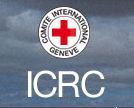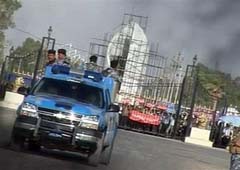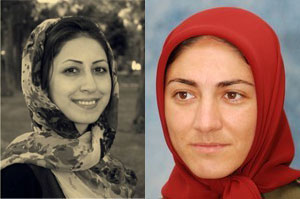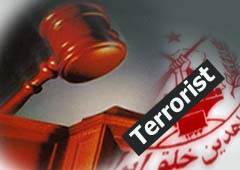Violent clashes in Camp Ahsraf, 60 km north-east of Baghdad, recently left a number of people dead or injured. Over 3,000 Iranian nationals belonging to the People’s Mujaheddin Organization of Iran (PMOI) live in the camp. Magne Barth, head of the ICRC delegation in Iraq, explains the ICRC’s role and response.

ICRC-1
What happened during the clashes at Camp Ashraf? What is the current situation?
Clashes on 8 April between Iraqi forces and Iranian nationals belonging to the People’s Mujaheddin Organization of Iran (PMOI) living in Camp Ashraf resulted in a number of deaths and injuries. According to our information, a number of casualties were taken to Baquba Hospital. These latest events have aggravated a situation that had been tense for quite some time.
We call on all those involved to exercise restraint and to comply with applicable law. This means, among other things, that the use of force by law-enforcement personnel must conform to the standards that govern law-enforcement operations. In addition, the dignity and physical well-being of all individuals must be preserved at all times.
What is the ICRC doing?
We are closely following the latest events, particularly the provision of medical care for the casualties and the evacuation of the dead and injured. Less than 24 hours after the clashes started, the ICRC provided dressing materials for Baquba Hospital, where casualties have been taken, and we remain in close contact with the hospital management. Should there be further needs, we are ready to assist.
After hearing that six people had been arrested and taken to Khalis Police Station, ICRC delegates visited the facility on 13 April to assess conditions of detention and the treatment of people being held there, and to give detainees the opportunity to contact their families.
Do you have regular contact with the residents of Camp Ashraf?
The ICRC has visited Camp Ashraf in the past in order to meet the residents and, in particular, to offer to help them contact their families in Iran and elsewhere through the exchange of Red Cross messages.
After the clashes on 8 April, people outside Iraq who have relatives living in Camp Ashraf contacted the ICRC and various national Red Cross and Red Crescent Societies, as they were worried about what might have happened to their relatives. We will try to help people obtain information on those who were caught up in the clashes.
What are the obligations of the authorities?
The authorities have the obligation to respect the rights that Ashraf residents enjoy under national and international law. In particular, the authorities must preserve the residents’ physical and mental well-being at all times, and must allow families to remain together as far as possible.
Furthermore, the ICRC has regularly reminded the authorities of their obligation to respect the principle of “non-refoulement,” which is a principle of international law that prohibits a State from transferring people to another State or authority if there is a risk that they may be subjected to any kind of ill-treatment, or that they may face persecution on account of their race, religion, nationality, membership of a particular social group or political opinion.
We have also reminded the authorities of their obligation to ensure that civilians in Camp Ashraf – as elsewhere in Iraq – have access to such basic necessities as food, water and medical care.




